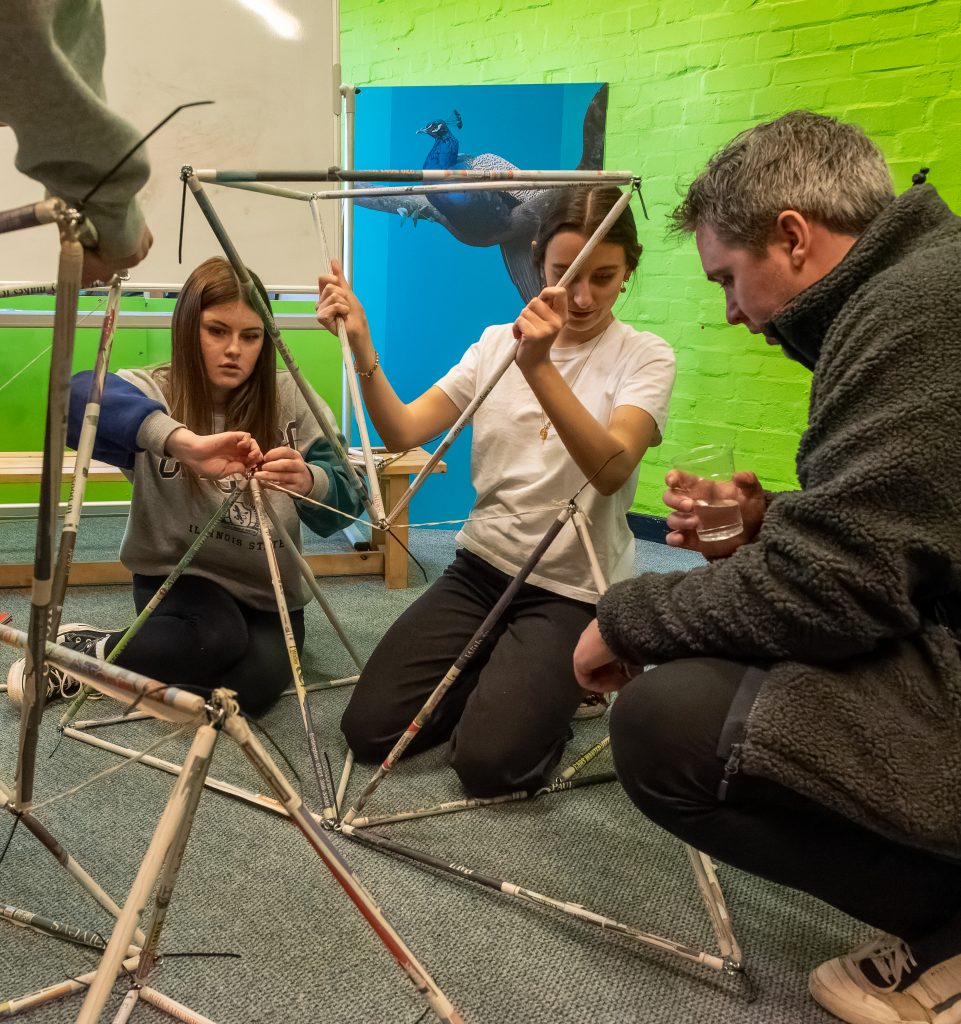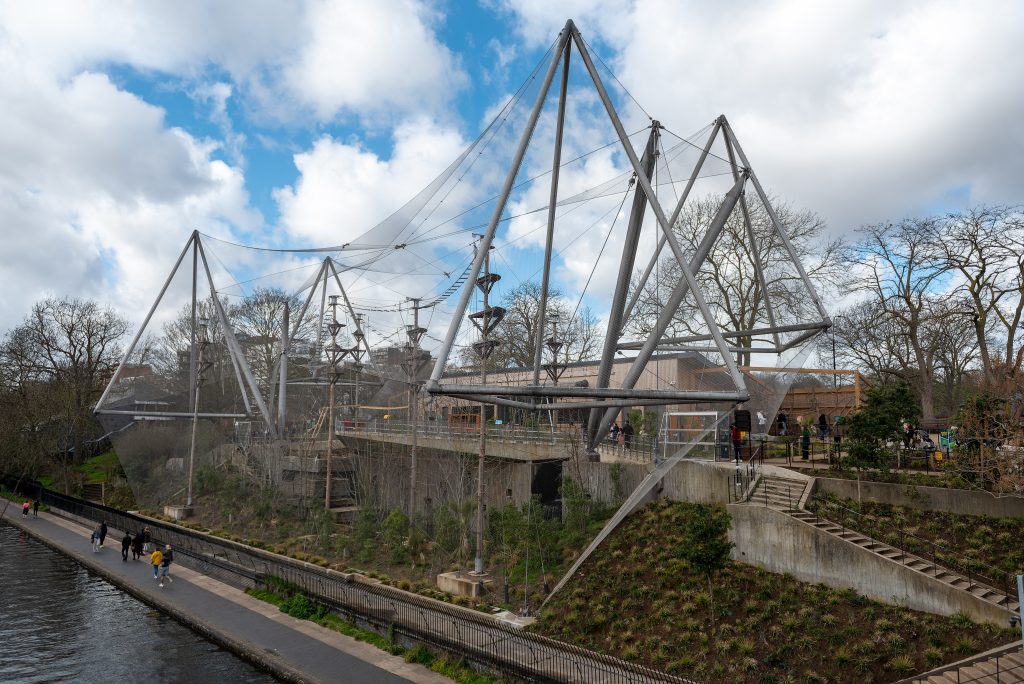Holly Bestley is a Senior Learning Officer at ZSL (Zoological Society of London) – the international wildlife conservation charity that runs London and Whipsnade Zoos. ZSL’s Community and Learning Team work with schools, local charities and partner organisations to engage people in the wonder of wildlife, foster care for the environment and forge pathways into careers working with wildlife. We recently met with Holly to discuss her role and why young people should consider a career in the wildlife and conservation sector.
Where did your journey with wildlife and conservation begin?
My dad is a big nature lover. He’d always point things out to me while I was growing up, like: ‘look a red kite!’ – so those things felt like something important to me. My mum used to get exhausted by me asking things like ‘Why is the sky blue? How does the car work?’ I liked learning why and how it’s all there. Why do some birds lay more eggs than others, for example? When you find out, it’s like the universe revealing itself to you.
As I got older my interest developed into learning about environmental impacts and the biodiversity crisis we’re going through. At university it became clear to me that I wanted to work in conservation. After some time I realised I mostly loved the communication aspects of it all too, so I ended up doing an MA in Science Communication and volunteered at London Zoo. That led me to where I am today.

Which aspect of your career makes you especially proud?
I feel very privileged to work in an organisation where I’m surrounded by stories of hope. Take the Mauritius Kestrel for example, they were almost extinct in the 70s but ZSL have worked to protect numbers that have gone from 4 to 300. Also, it operates independently now but we co-created a self-funding project called Net-Works, which salvages discarded fishing nets from the ocean, mainly in the Philippines, to turn them into office carpet tiles. Partula snails started disappearing from French Polynesia in the 1980s, but in collaboration with a lot of other zoos, we’ve released over 21,000 back into the wild. Everyday I encounter somebody who’s doing something really cool, and I love that. I believe things are going to get better – we know conservation works, and we have the power to make a difference. I think it’s really important to nurture that positive mindset.

What advice would you give to a young person thinking about future careers?
Just find out what you’re interested in and what sets your soul on fire. What you do first or next isn’t necessarily going to be what you do forever, but just make sure you care about each step of what you’re doing. A lot of things are interdisciplinary, too. At the ZSL we need animal experts, but we also need experts in marketing, animal nutrition, IT, economics, business, sociology, and psychology. You’re going to do a lot of different things and you’ll be able to bring diverse ideas together from your different experiences. Tim Minchin did a graduation speech in 2013 and he said ‘the next worthy pursuit will probably appear in your periphery… if you focus too far in front of you, you won’t see the shiny thing out the corner of your eye.’ Look out for the opportunities. Just say yes, get the experience. It will build you into a weird and wonderful person in the future where you’ll find your niche.
What do you think is the most important aspect of science and conservation at London Zoo?
A few things…
The first is focusing on insurance populations and research and evidence building at London and Whipsnade Zoo. For example, the Lake Oku clawed frog from Cameroon is evolutionary distinct, and globally endangered, but was first bred in captivity by us. Now we know just what conditions they require in the wild to thrive, so can protect them effectively.
The second is our engagement and inspiration work with the public. You just can’t mimic how it feels to be face to face with an animal. The core memory that gets unlocked the first time you see an elephant is not something that can be replicated through any other means, and hopefully can inspire passion. Even if our visitors don’t go and become the next David Attenborough they at least consider their impact on animals and the environment.
The third is the Institute of Zoology, where MA students and PhD students work with the scientific data our work is based on. The Conservation and Policy Team then put those scientific learnings into practice in over 70 countries. They work with local people, local charities and local governments to support the conservation work that needs to be done for species across the globe. ZSL is unique because all of this works together to protect species and restore ecosystems.

Why do you think it’s important for young people to be involved with wildlife and conservation?
Because the biodiversity crisis is an issue that’s impacting all of us. Being exposed to wildlife and conservation means you can take that concern with you into all aspects of life. Young people also have such unrestrained creativity, we can learn so much from their approach to creative solutions. We need that in conservation.
Holly manages the Careers and Youth Programme, running careers talks, fairs and conferences as well as employability courses, to help increase access to conservation and animal related careers for those under-represented in these sectors. This could mean anything from running an introduction to conservation one minute, to mucking out the camel enclosure, or taking students behind-the-scenes in the aquarium. As a part of the 2022-23 Masterclass season, London Zoo led a National Saturday Club Masterclass with Scale Rule, a built environment collective, on animal shelters and structural engineering.
Find out more about ZSL’s work: zsl.org
Consider joining the ZSL Youth Advisory Board.
Check out London Zoo’s Careers and Youth Work.


Interview conducted and edited by Anisha Jackson